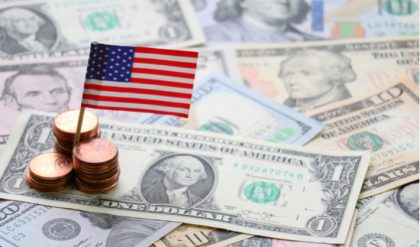CAMBRIDGE, Mass. — Before he turned 40, Roland G. Fryer Jr. had earned tenure at Harvard, received a MacArthur “genius” grant and won the most prestigious award for young American economists. He stoked a national debate by concluding that police officers show no biasin the shootings of black men.
But his rapid ascent has taken a troubling turn as Harvard officials review a university investigator’s conclusion that Dr. Fryer fostered a work environment hostile to women, one filled with sexual talk and bullying.
The findings, reviewed by The New York Times, found that Dr. Fryer had engaged in “unwelcome conduct of a sexual nature” toward four women who worked in the Harvard-affiliated research lab he created. In one case, his “persistent and pervasive” conduct contributed to stress that resulted in the accuser’s taking disability leave, the investigator found. The investigator could not substantiate some allegations, including one asserting retaliation by Dr. Fryer.
Harvard is still investigating a similar complaint from a woman who worked in the lab a decade ago. That woman says Dr. Fryer made what she considered sexual overtures, then retaliated against her after she rebuffed him.
Harvard is not expected to take action until officials have finished investigating all of the complaints against him, according to people familiar with the process. Possible outcomes include a reprimand, suspension or dismissal.
As an African-American, Dr. Fryer has been a trailblazer in rising to the top tier of a field dominated by white men. He was, at 30, the youngest black professor to be granted tenure at Harvard.
Now 41, he is one of Harvard’s best-paid faculty members, earning more than $600,000, the university’s 2016 tax filing shows. He has brought at least $33.6 million in grants to the university, according to a résumé on his Harvard web page.
The sexual-harassment accusations have unsettled the economics profession, which is struggling with a history of bias against women. Dr. Fryer was recently elected to the executive board of the American Economic Association, the most prestigious body in academic economics, and the group says it will consider the Harvard inquiry’s conclusions when they are released.
Dr. Fryer told a Harvard investigator that any sexual banter in his office was related to his research and “in the spirit of academic freedom.” He wrote in his response to the complaint that “certainly no one ever brought to my attention that I ever said anything that made any employee uncomfortable.”
But in interviews with The New York Times and for Harvard’s investigation, former employees described Dr. Fryer as a bully and the lab as a place where sexual jokes and comments were routine, and where employees were expected to laugh along with the group or risk being isolated. Documents and interviews suggest that Dr. Fryer was told repeatedly over the course of 10 years — by employees and by at least one university official — that his conduct was out of line.
A former assistant reported to a Harvard human resources office in late 2008 that Dr. Fryer was sending her unwelcome and sexually suggestive nighttime text messages. Dr. Fryer agreed to change his behavior, apparently on the advice of a university official. But he directed another employee to compile examples of poor performance by the accuser. He refused to write recommendations for economics graduate programs she was applying to, according to her complaint, and all rejected her.
The woman’s pending complaint, a copy of which was reviewed by The Times, is one of at least three brought against Dr. Fryer under Title IX, the federal statute prohibiting sex-based discrimination by educational institutions that receive federal funding. One of the cases was brought by Harvard’s Title IX office on behalf of several women. The filing of some of the complaints was first reported by The Harvard Crimson.
Separately, Harvard is investigating Dr. Fryer’s spending and the lab’s finances, according to several former employees who have been asked about the issue by university officials. In a statement for this article, Dr. Fryer said he “hired a first-rate finance team to insure both transparency and full compliance with Harvard policy.”
Last spring, Harvard imposed “interim measures” while conducting its investigations, including barring Dr. Fryer from entering the Education Innovation Laboratory, the off-campus space known as EdLabs where he has presided over a group of employees and research assistants.
This account draws on documents related to the allegations against Dr. Fryer and interviews with more than a dozen current and former employees of his laboratory, as well as other colleagues and associates, many of whom supplied copies of electronic communications with him. Nearly all insisted on confidentiality, fearing retaliation.
Dr. Fryer, in a statement, portrayed the EdLabs workplace in a different light. “The lab has always been an extraordinarily collegial place,” he said. “Many people commented on each others’ lives outside of work including their dating and other relationships. Jokes and comments by both female and male lab workers of a sexual nature were occasionally part of such discussions. Not one person has ever complained to me or to any other manager or employee that I am aware of suggesting they felt uncomfortable about any of these interactions. That said, if any comments made in the past were found to be offensive or made anyone uncomfortable, that was certainly never my intent and I am deeply sorry.”
Dr. Fryer also said that “I have never and would not retaliate against any employee.”
Rachael Dane, a Harvard spokeswoman, said the university was “aware of and take seriously concerns raised about the treatment of staff” but would not discuss or confirm any unresolved case.
Fear of Reprisals
Academic economics has struggled to advance women to doctorates and professorships. The approval of a small group of prominent researchers, mostly men, can make or break careers.
June Daniel, a lawyer who as executive director oversaw the lab’s administration for more than five years, recalled that Dr. Fryer complained when Harvard administrators pushed the Economics Department to find qualified female candidates for professorships. “Roland said that no such candidates exist,” Ms. Daniel wrote in response to questions from The New York Times. She left the lab last year.
Asked to comment, Dr. Fryer said, “I have been a tremendous champion for women and other underrepresented groups in economics,” and noted that he had started a departmental committee to “increase diversity and inclusion.”
Former employees said Dr. Fryer often reminded junior researchers that his recommendations could vault them to top graduate programs — or ground their careers. Several women said Dr. Fryer had written negative recommendations after they angered him in some way, or refused to write a recommendation at all.
Ms. Daniel said Dr. Fryer’s reputation for vindictiveness made it hard for researchers to speak out against what she called his routine “inappropriate comments about women or their body parts, men’s body parts, homosexuals, minorities or other groups.”
Some current and former employees defended Dr. Fryer as a demanding but fair boss who frequently hired and promoted women into senior roles. “I don’t feel like I was ever judged on anything other than the quality of my work,” said Rucha Vankudre, the lab’s current research director. “He takes me and my ideas seriously.”
A Swift Academic Rise
Dr. Fryer’s rise in the field was swift and celebrated. In 2011, he won the MacArthur grant, and in 2015 he received the John Bates Clark Medal, which honors an American under 40 for “a significant contribution to economic thought and knowledge.”
He has been profiled by The New York Times Magazine, The Financial Times and other publications, in articles that often stress his rise from a rough childhood in Florida and Texas. He won a scholarship to the University of Texas, Arlington, and graduated in two and a half years, before earning an economics doctorate from Penn State.
Much of his research has focused on racial gaps in educational achievement, and how to close them. In 2007-8, he served as chief equality officer for New York City’s Department of Education, where he experimented with paying students for scoring well on standardized tests.
More recently, Dr. Fryer has studied police violence; in a working paper released in 2016, he found no evidence of racial bias in police shootings, which he said was “the most surprising result of my career.”
Some of those who have worked in his lab say they hoped the job would lead to a career in economics, but a few say Dr. Fryer instead drove them out of the field.
“I write papers that I think will help the world,” Dr. Fryer wrote to one research assistant in a chat message, after she complained about his treatment of employees. “I’m far less interested in people’s feelings. They can quit if they don’t like it.”
After-Hours Messages
The earliest incidents to figure in the formal complaints involve a woman who landed a job with Dr. Fryer as an assistant a decade ago, at 23, barely a year after graduating from college.
Dr. Fryer began sending her text messages that “quickly veered into flirtatious and sexual overtures,” according to her complaint, which has been reviewed by The Times, along with text messages that the two exchanged. He invited her to see him socially, and she initially agreed, but became uncomfortable as he pushed her to spend more time with him away from the lab.
In her first month, she made visits to his apartment at night to play video games, and he sometimes complained that she left too early or did not drink enough while there. He invited her to weekend activities that he said needed to stay a secret from others in the lab, to avoid rumors. And he sent after-hours BlackBerry messages, including one telling her: “Ur lucky ur not here. I would either tackle, bite u or both.”
The woman told friends she was upset by the messages and his conduct, according to documents in her complaint, and she stopped visiting his apartment.
After that, Dr. Fryer began to criticize her work. She informed human resources, but was told that the university could not transfer her to a different researcher.
Dr. Fryer apologized to the woman and said she had misinterpreted his “friendly nature,” according to notes taken at the time by two managers in the lab. The apology, along with a pledge never to contact the woman outside of work hours, appears to have been suggested by a university official, the notes show.
The woman’s formal complaint, filed this year, includes an email sent by Dr. Fryer to a deputy soon after her visit to human resources. “I will be sending you every complaint I have about her performance on a regular basis,” Dr. Fryer told the deputy, Richard Hagey, who has since died.
Seven months later, after what she described in her complaint as “tirades” by Dr. Fryer about her job performance, the woman resigned. She pursued a career in a different academic field.
Sex Talk ‘in Detail’
Another case was brought by a woman who began working for Dr. Fryer in 2015. Over the course of two years, she told the investigator, Dr. Fryer repeatedly engaged her in conversations of a sexual nature. She cited 32 examples of such behavior; the investigator substantiated six. In others, the investigator found insufficient evidence to confirm that an incident occurred or that the conduct was unwelcome.

Some of the woman’s allegations were supported by text messages, chat logs or other documents. On one occasion, Dr. Fryer texted the woman while she was out with friends that she was “gonna get a … roofy,” a reference to a date-rape drug. Later he texted her, while she was still out, “Be safe tonight. Wear gloves if ur gonna have hand action.”
Dr. Fryer told the investigator that the comments were an “ill-attempted joke.” The investigator found they were sexual in nature and “objectively unwelcome” for the woman.
In early 2017, Dr. Fryer suffered a heart attack and subsequently began to spend more time in the lab and less time traveling. After that, the tone of his comments changed and “became more public and derogatory,” the woman told the investigator.
According to the investigator’s report, Dr. Fryer began commenting on the woman’s sex life and suggesting that the woman was in a sexual relationship with a former manager in the lab. In June, she texted her roommate complaining that Dr. Fryer had spent 20 minutes talking about how she and the former manager were probably having sex, using a vulgarity. “Like in detail,” she wrote. “Body parts.”
A few days later, the woman went to a human resources official to complain about Dr. Fryer’s behavior. Later that month, her doctor called human resources to say her patient was in “a crisis situation,” and the woman began a disability leave. She never returned to work at the lab.
The accuser has also filed a complaint with the Massachusetts Commission Against Discrimination.
‘Unwelcome Conduct’
Other employees told similar stories about Dr. Fryer, both in interviews with The Times and in discussions with Harvard’s investigator.
One incident was raised in the complaint filed by the Title IX office: an episode in which a woman in the lab told a story about bending down to help an older faculty member tie his shoe. According to several witnesses cited in the investigator’s report, Dr. Fryer launched into an extended monologue implying that the woman had performed fellatio. By at least two accounts, Dr. Fryer put his foot on her desk so that his crotch was in front of her face, in view of several employees, including two other women who told the investigator they were upset by the behavior.
The investigator concluded that Dr. Fryer’s “unwelcome conduct of a sexual nature was sufficiently severe” that it interfered with the three women’s ability to work.
Dr. Fryer told the Harvard investigator that “that riff” was simply a joke and that the employee it involved was “laughing hysterically.” He questioned whether he was being singled out for scrutiny because of his race.
“Why am I the only one who violated policy when many others participated?” he asked, according to the investigator’s report. “Is it because I am the only professor or because of my skin color?”
The report responds directly to that point. The investigator, it said, was troubled that Dr. Fryer “appeared to discount the significance of his roles as a senior faculty member at the university and faculty director of EdLabs.”





